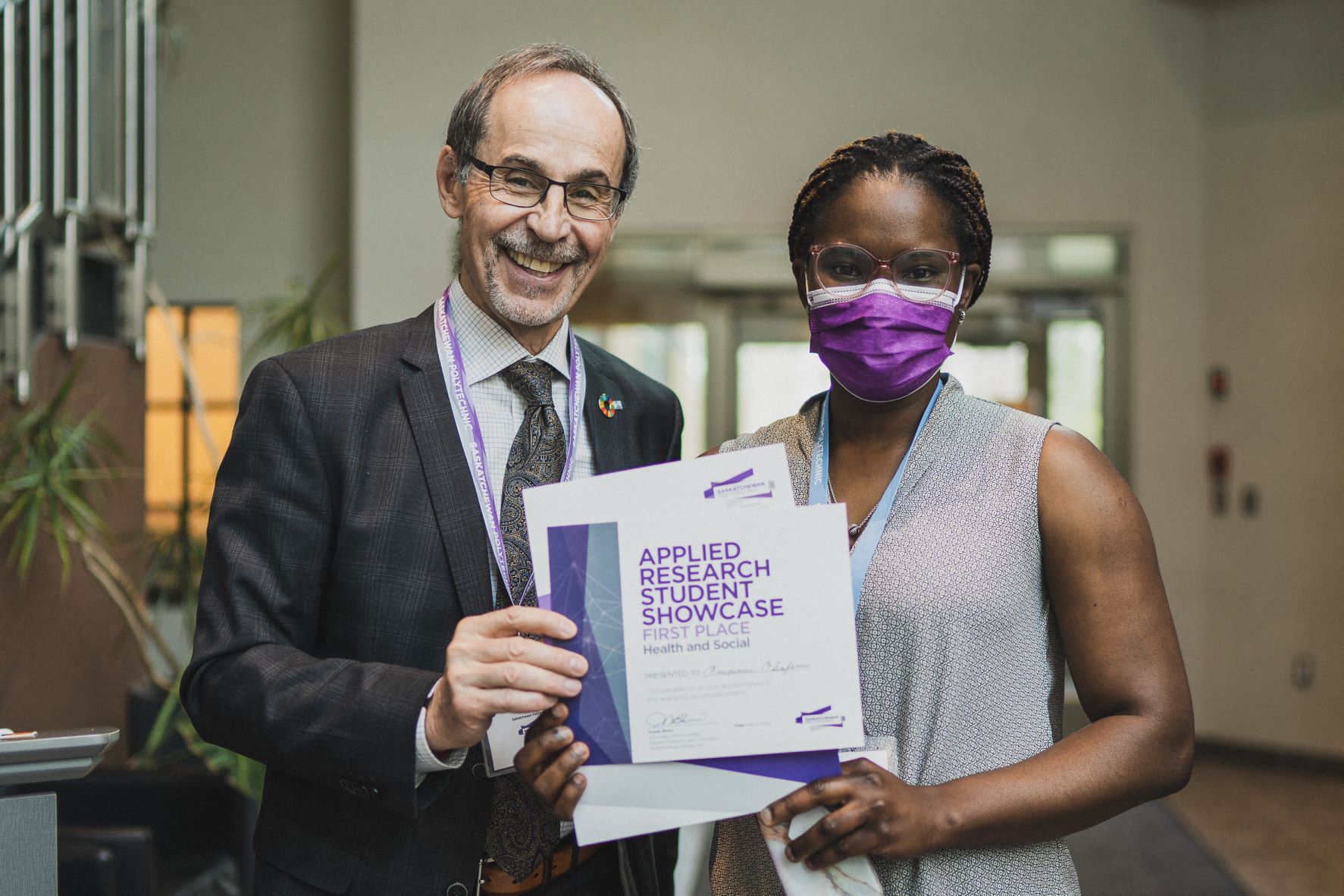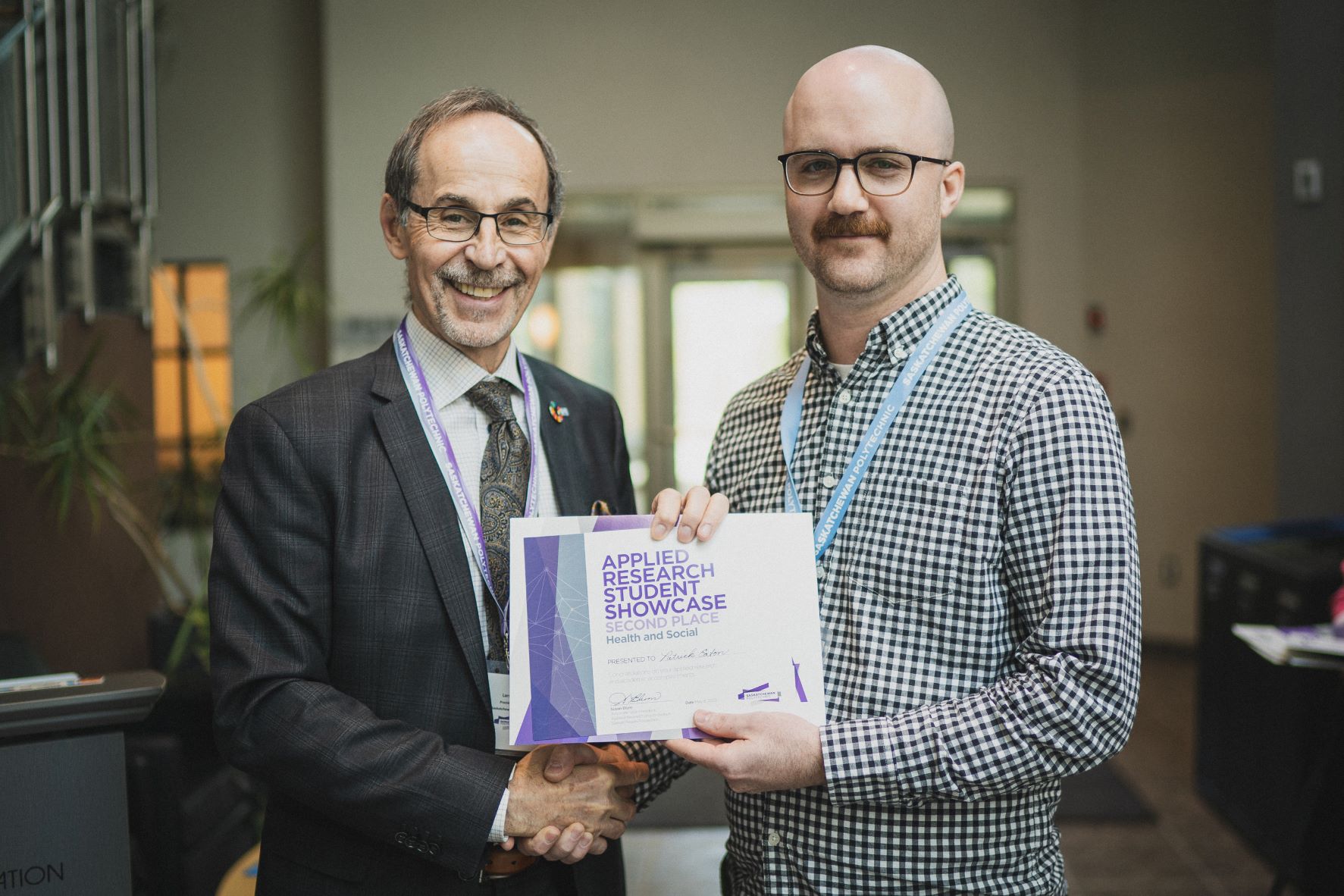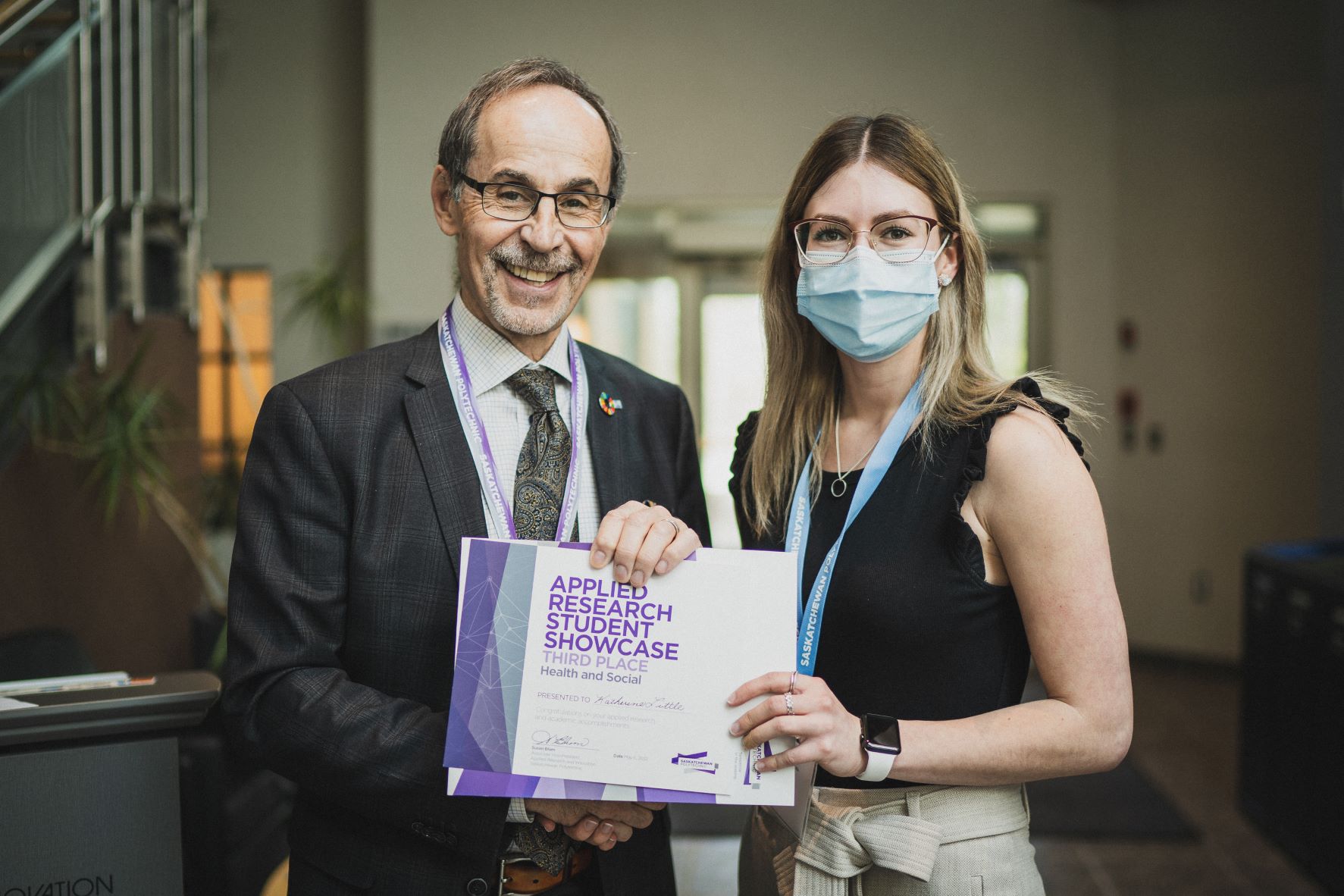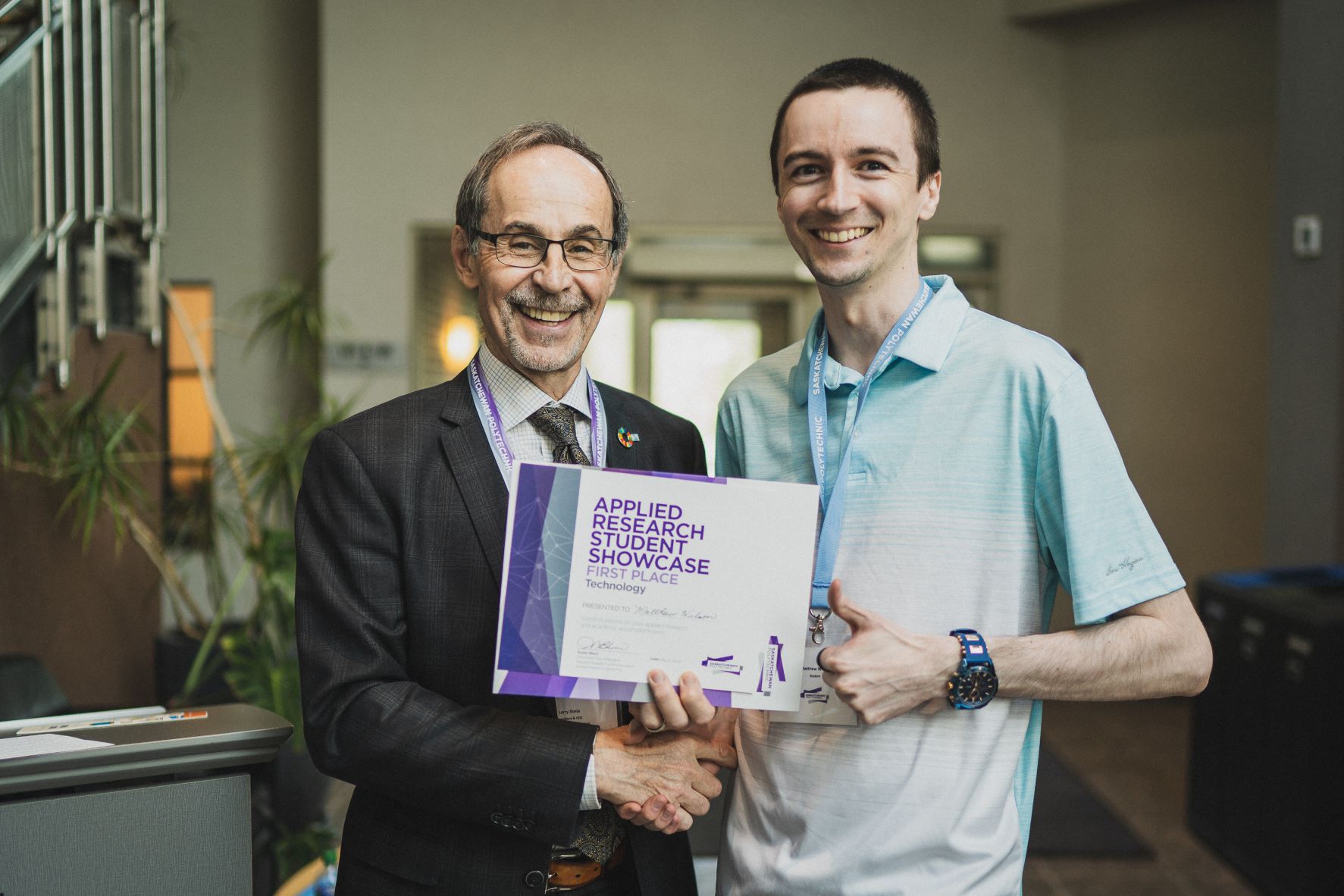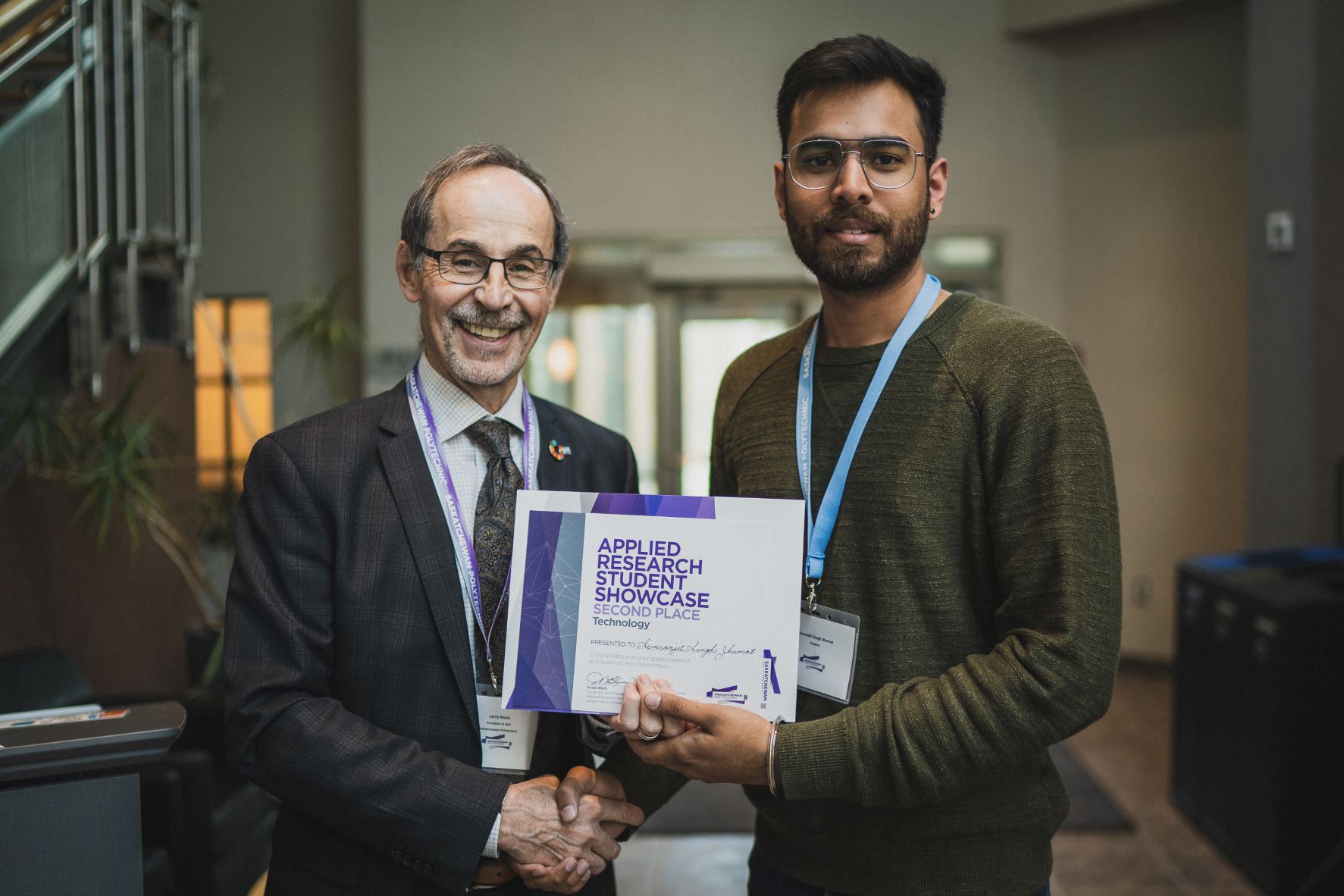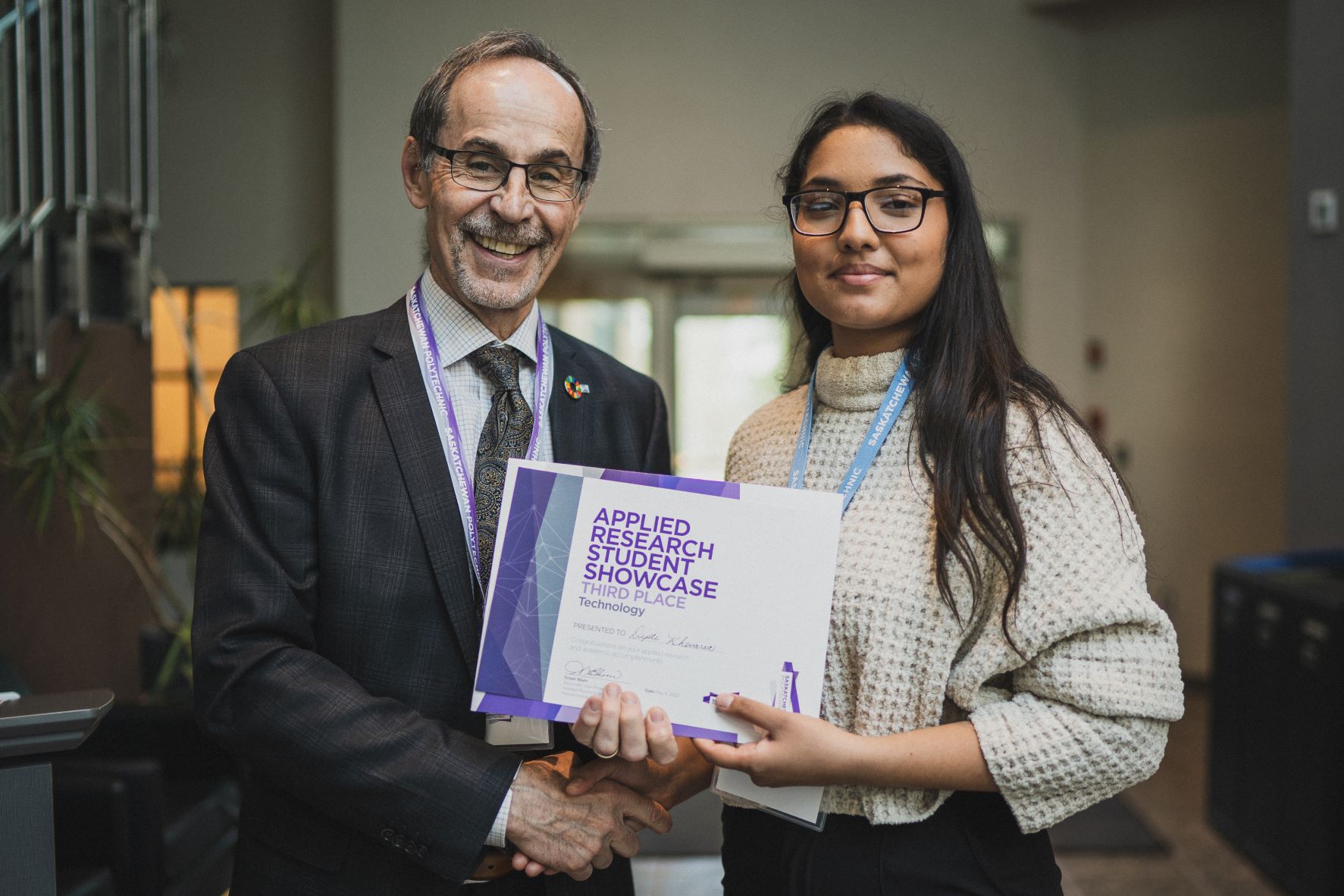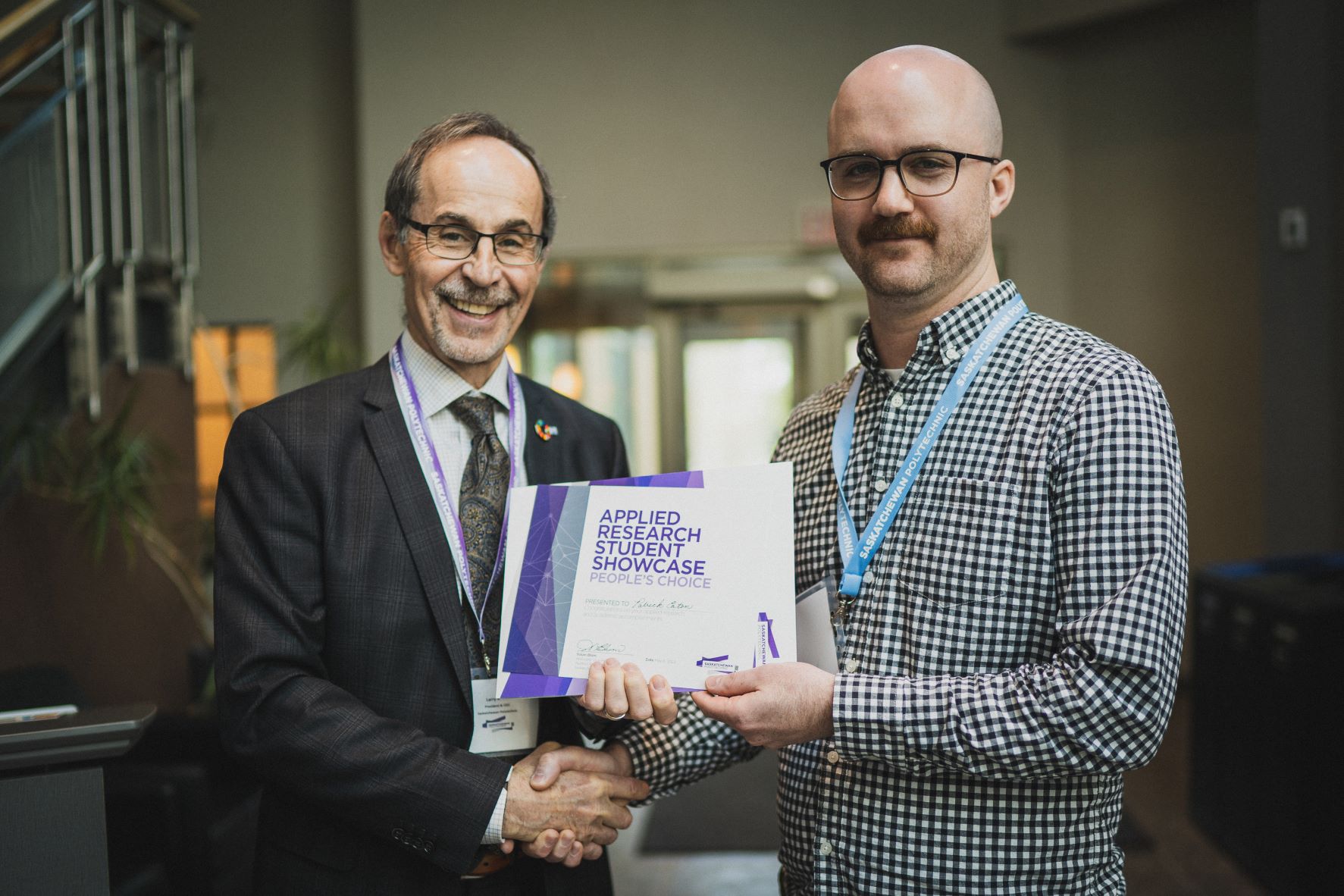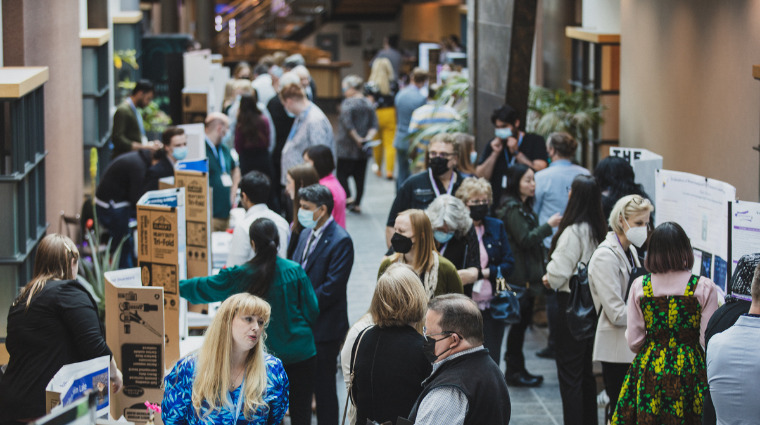
Applied Research Student Showcase shared 24 innovative and creative applied research projects
May 6, 2022 – Saskatchewan Polytechnic’s Applied Research Student Showcase celebrated 24 projects focused on solving real-world problems. Projects were adjudicated by judges, industry and community partners.
“Congratulations to each of the innovative and passionate students who participated in this year’s Applied Research Student Showcase,” says Dr. Larry Rosia, Sask Polytech president and CEO. “You truly are helping lead the rise of polytechnic education and helping us build a better future. Participating in applied research gives our students hands-on experience to transition seamlessly into their chosen careers and positions them as employees of choice in today's competitive job market.”
“Sask Polytech students are encouraged and supported by faculty to partner with business, industry and the community on applied research projects that provide real-world solutions to today's challenges,” says Dr. Susan Blum, associate vice-president, Applied Research and Innovation. “We are preparing the leaders of today for success in the communities and economies of the future. Congratulations to this year’s participants and winners. You are leading the way!”
Some of the students who participated previously received a $1,000 scholarship to assist with their research. Other students presented capstone projects, which are final assignments part of their academic program.
2022 Applied Research Student Showcase Winners
HEALTH AND SOCIAL
|
First – ($1,000) |
Omowumi Obafemi Saskatchewan Collaborative Bachelor of Science in Nursing (SCBScN) Uptake of nursing informatics among nursing faculty of the SCBScN program This project focused on the perspective of nursing faculty on the uptake and integration of nursing informatics when teaching and imparting knowledge. Faculty members were surveyed using open-ended questions.
|
|
Second ($800) |
Patrick Eaton Geographic information science (GIS) Long-term drinking water advisories in Canada This project provided an interactive, time-based map exploring the history of long-term drinking water advisories on First Nation communities in Canada using GIS tools and systems. The goal of the project is to increase awareness of long-term drinking water advisories in Indigenous communities.
|
|
Third ($500) |
Katherine Little Saskatchewan Collaborative Bachelor of Science in Nursing (SCBScN) YOUth matter The research team delivered growth mindset workshops to students in grades three tosix in Nipawin, Perdue and Meadow Lake. Pre- and post-workshop questionnaires were completed to measure the impact of the workshops. Results will help determine if more programming is needed.
|
TECHNOLOGY
|
First ($1,000) |
Matthew Wilson Computer Systems Technology Utilize machine learning for state-of-the-art cardiac ECG classification The goal is this project is to use machine learning to mitigate misdiagnoses of electrocardiograms (ECGs). Research has already been conducted, and data has been gathered from publicly available datasets. This model will attempt to compliment other professional models.
|
|
Second ($800) |
Simranjit Singh Jhumat Civil Engineering Technologies Compressive strength analysis of plastic added concretes This project looks at the benefits of recycling plastic into concrete. Three concrete and plastic mix designs were prepared and compared for strength. This project looks to conserve concrete sand, which is not a renewable resource and stop plastic from entering landfills.
|
|
Third ($500) |
Dipti Khevaria Geomatics and Surveying Engineering Technology Evaluation of remote sensing and GIS techniques for cemetery mapping This project used GIS and remote sensing technology to map Pine Grove Cemetery. The signatures of marked graves will provide a valuable input for detection of unmarked graves within the cemetery. These signatures will also help to improve ground-penetrating radar (GPR) scanning techniques for detection of unmarked graves.
|
INDUSTRY/PEOPLE’S CHOICE
|
Industry choice ($500) |
Patrick Eaton Geographic information science (GIS) Long-term drinking water advisories in Canada This project provided an interactive, time-based map exploring the history of long-term drinking water advisories on First Nation communities in Canada. The goal of the project is to increase awareness of long-term drinking water advisories in Indigenous communities.
|
Sask Polytech faculty, researchers and students collaborate with the private and public sector on applied research projects. These projects take many forms including product development, process design, technology adoption and proof of concept. Using state-of-the-art facilities, equipment and faculty expertise Sask Polytech delivers solutions and helps industry to capture new opportunities. Intellectual property for all applied research projects is retained by industry, creating more incentive for future creative engagement and ongoing collaboration.
Sask Polytech is always looking to create more work-integrated learning opportunities for our student researchers. If you have a business challenge you need assistance with, please contact us.
Learn more at saskpolytech.ca/research.
Saskatchewan Polytechnic is signatory to the SDG Accord. Sustainable Development Goal alignment is one of the ways Sask Polytech is leading the rise of polytechnic education.
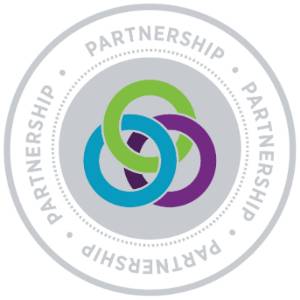
Published May 2022.

